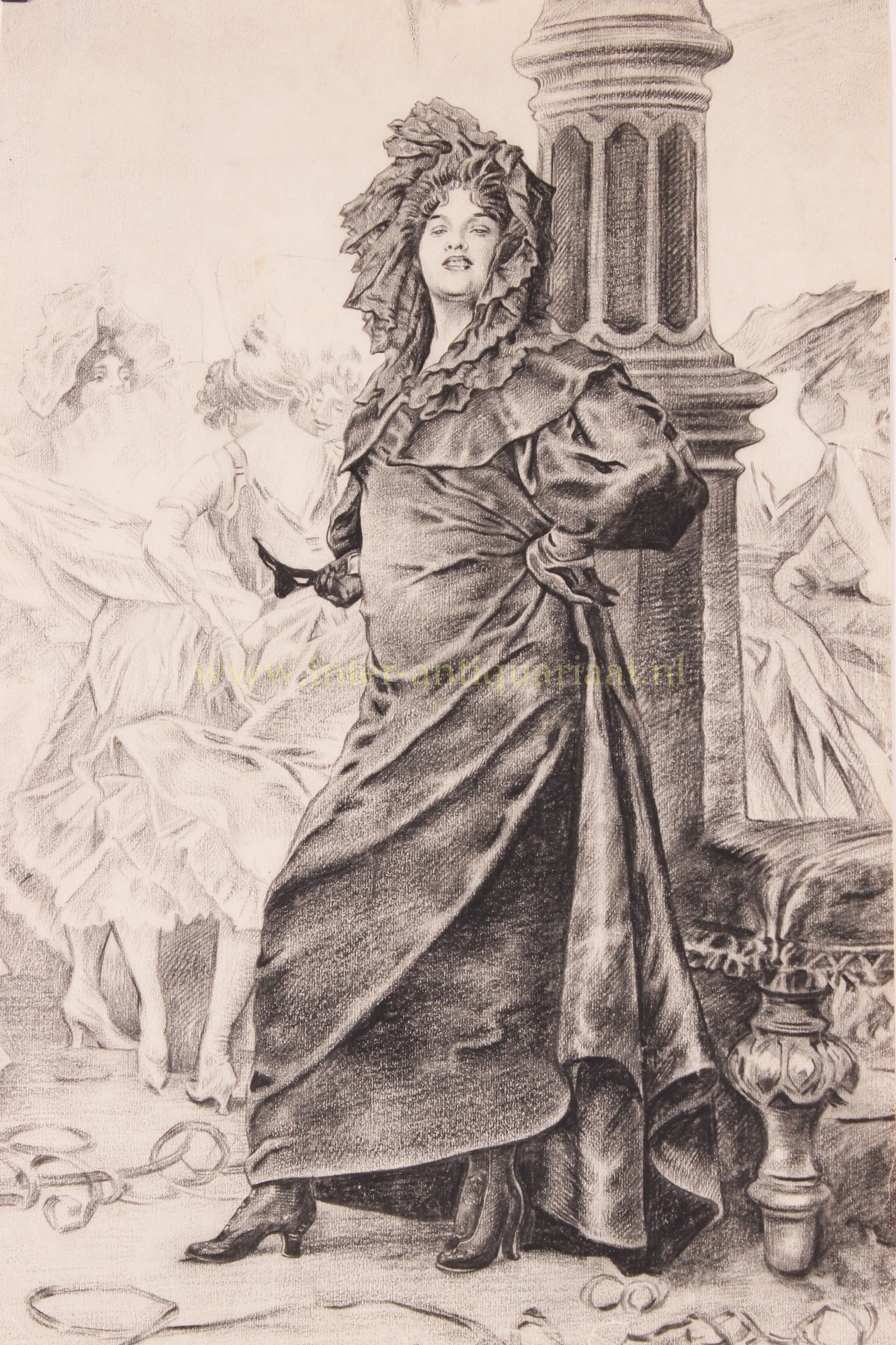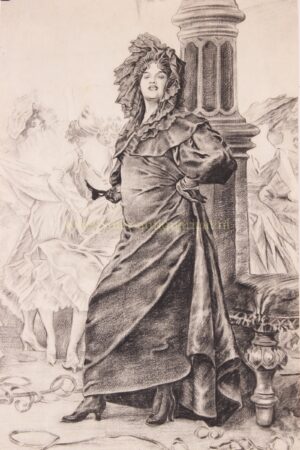Masquerade ball – C. Wagner, c. 1890
€850
THE LADY IN THE BLACK DRESS
Charcoal drawing made by “C. Wagner” (?) around 1890. Size: approx. 23 x 30 cm.
The nightlife in Paris was bustling at the end of the nineteenth century. We are in the Belle Époque. Oil lanterns on the streets were replaced by gas lanterns, providing more and better light, making it less dangerous to go out at night. People could now meet ‘en publique‘ and were no longer confined to private settings. A small social revolution took place, and there was an increase in cafes, bars, theaters, and other establishments where entertainment could be found in the evening hours.
An important part of the social life of the Parisian upper classes took place during ‘bals masques’. Hidden behind a mask and dressed in flamboyant attire, people could escape the social restrictions that dominated daily life. Guests could keep their identities hidden and were not bound by prevailing conventions. These ‘fêtes’ were often joyful and lively, with excessive eating, drinking, flirting, dancing, and gambling. They were commonly referred to as ‘carnivals behind closed doors’ for good reason.
Masked balls were inseparably associated with an atmosphere of adventure, mystery, and eroticism. Anything was possible: women dressed as Cossacks, men as brothel madams, dukes as footmen, and prostitutes as countesses.
Price: Euro 850,- (incl. frame)





